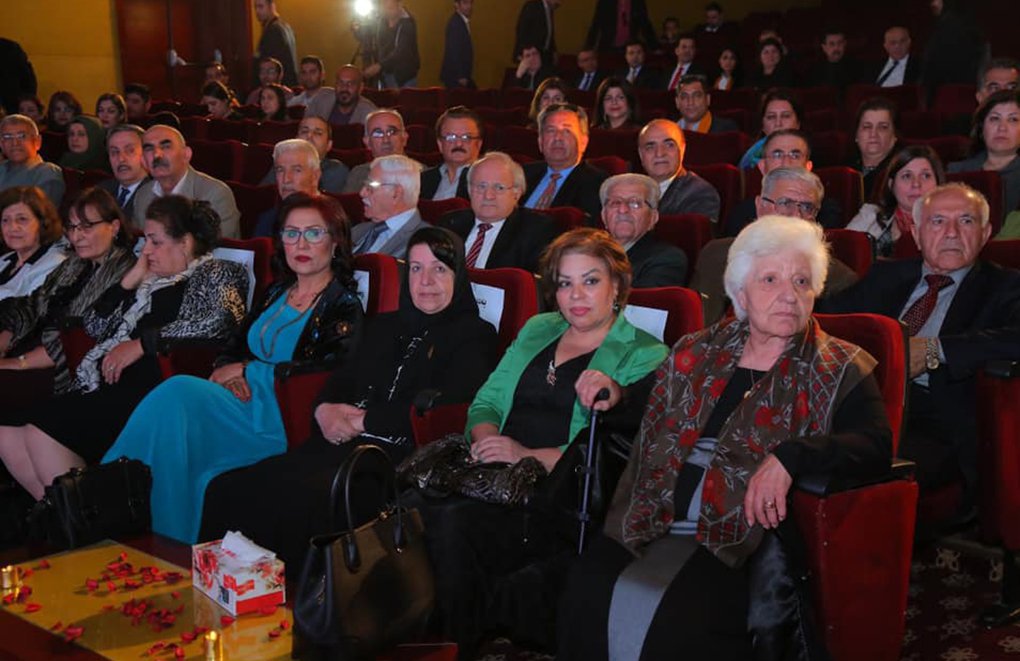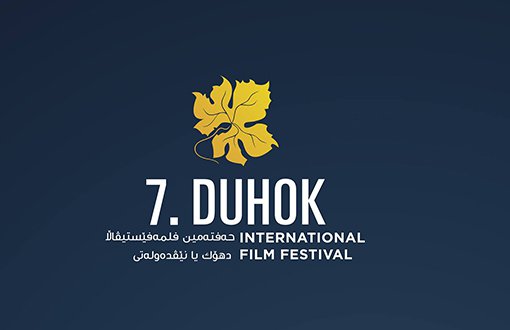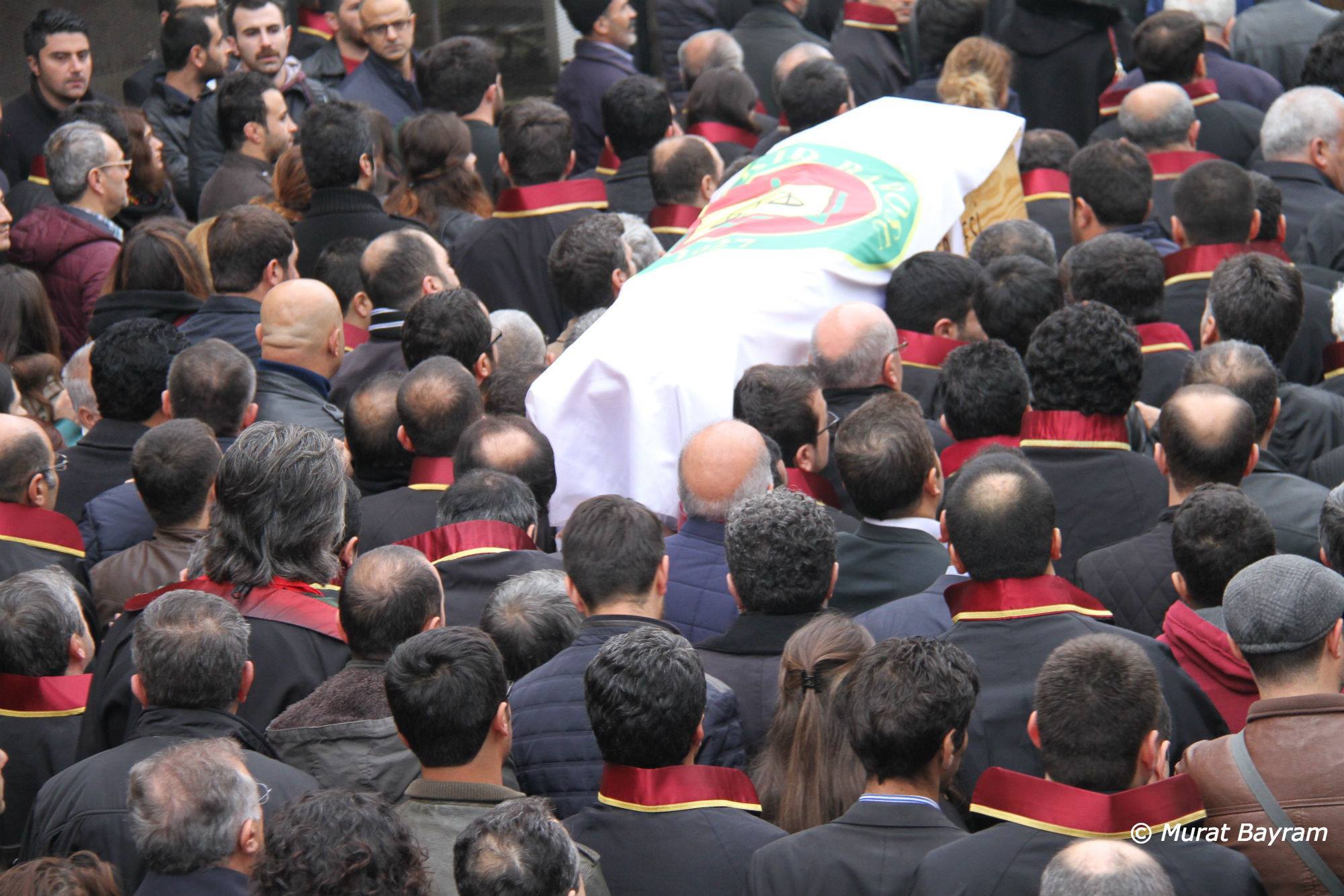* Photos: Murat Bayram
Click to read the article in Turkish
Newroz was celebrated by large crowds of people in Turkey's Kurdish-majority southeastern province of Diyarbakır yesterday (March 21) despite the measures taken against the COVID-19 pandemic.
The major issue on the agenda of Newroz celebrators was the recent closure case filed against the Peoples' Democratic Party (HDP).
28-year-old Sergen Sucu, in traditional Kurdish clothes, said, "HDP is the last means of reconciliation in Turkey." Just like several other people that I talked to, Sucu does not hold any hope for the justice of the state.
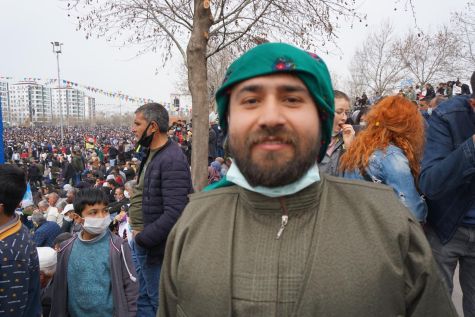
"Turkey is heading towards a one-man regime; the closure of the HDP means that all political groups will lose political ground.
"We have, of course, come here today to celebrate the festival of the Kurdish people oppressed for centuries and to lay claim to our culture. But the burning issue on the agenda today is the HDP."
They give a message to Kurds through Newroz
In terms of the number of participants, prevalence and scope, the largest Kurdish activity in Turkey is the celebrations held for Newroz. Therefore, for the groups that have a message for Kurds, the events held to mark Newroz festival is seen as a way to reach out to Kurds.
We did not encounter anyone opposing the HDP; I tried to read the state's stance by observing the attitude of police officers. The measures were very strict and the attitude of the police was mild.
When the state decided to take up a tougher attitude towards the Kurds in 1992, the security forces of the state opened fire on Newroz celebrators in Şırnak's Cizre district with real bullets. Then came the unidentified murders and eviction of villages in the region.
When the state decided to start a peace process with the Kurds in 2013, Kurdistan Workers' Party (PKK) leader Abdullah Öcalan's message from prison was read out during Diyarbakır Newroz. The pro-government media covered the issue live. The state led the "Peace Process".
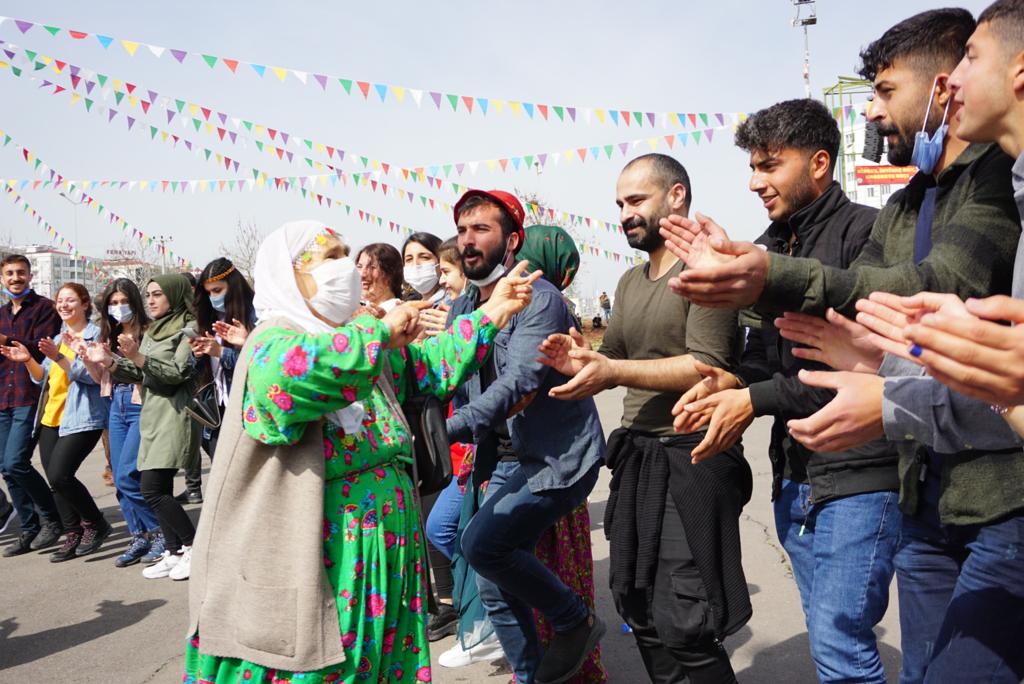
The parties carrying out pro-Kurdish political activities, as they put it, see such events as political rallies. This year, the Newroz celebrations were organized by the HDP, which is itself a political party.
Three days before Newroz was celebrated, the Chief Public Prosecutor's Office of the Court of Cassation filed a closure case against the HDP by applying to the Constitutional Court. For this reason, the HDP was expected to give an answer to this move "from the Newroz site".
What the HDP politicians frequently repeated was the following message: "The party might be closed, but your will cannot be hindered."
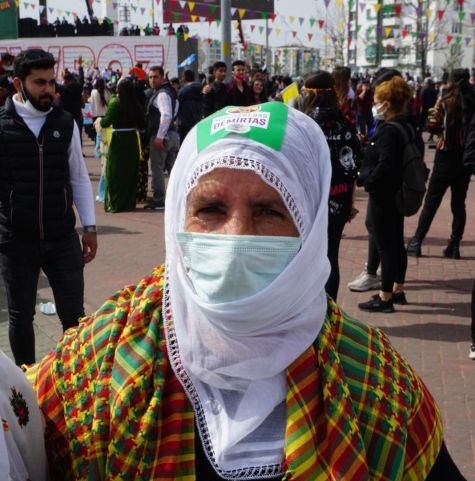
'I am the mother of all captives'
When I approached Esma Ateş (75), with the picture of Selahattin Demirtaş, the jailed former Co-Chair of the HDP, pinned to her head scarf, she told me, "My son was jailed for 14 years only because of his political activities. I am the mother of all political captives in all dungeons. Selahattin is my son as well. I want my children, the mayors, to be released."
'Right are not granted, they are taken'
As for Züleyha Çalman, she said, "We do not have any expectations from the state any more. I am hopeful that the people will lay claim to their rights. Rights are not granted, they are taken. The state is determined to not grant them, we are determined to take them."
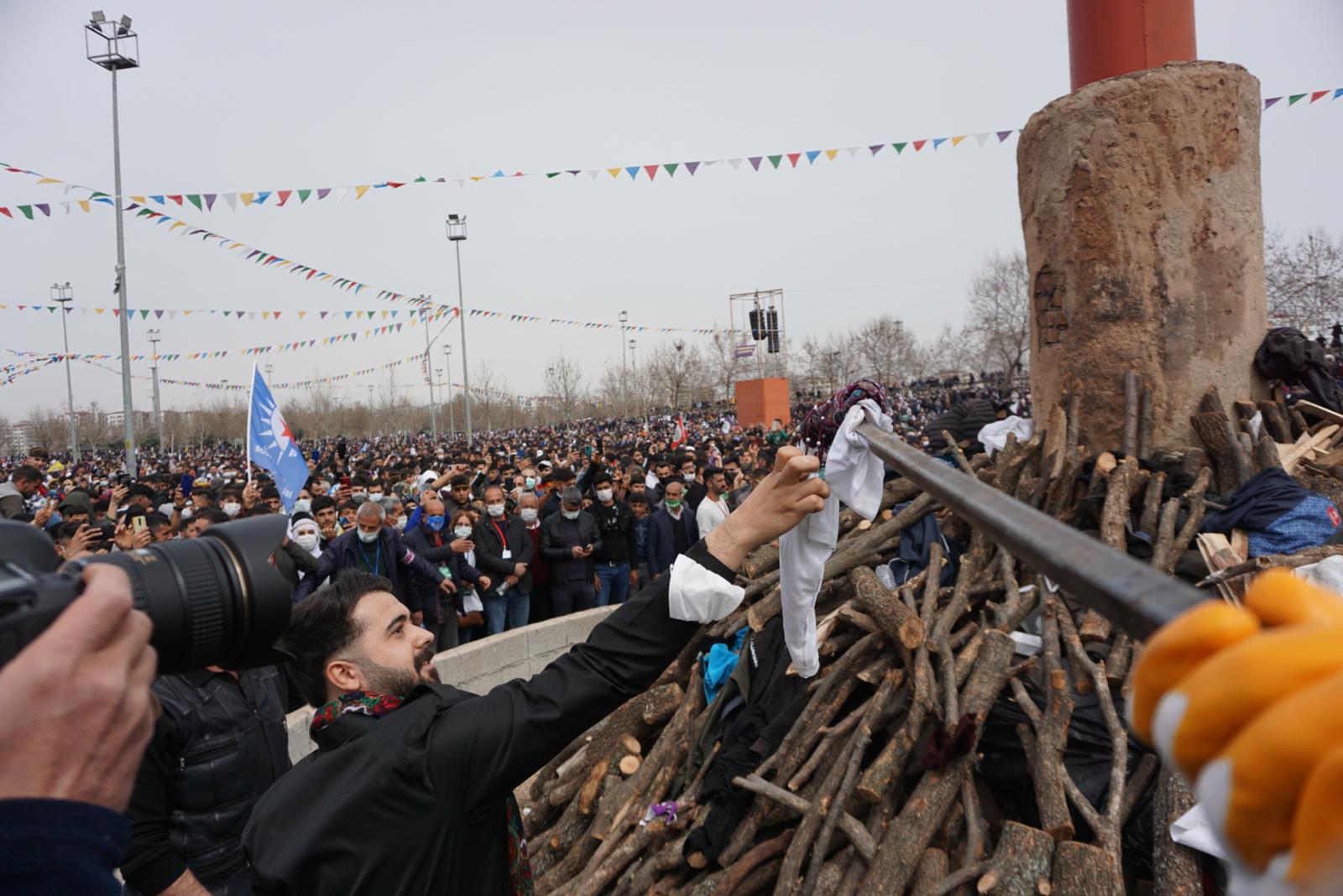
Press coverage of Diyarbakır Newroz
Yesterday's Newroz celebration was the 10th Newroz that I had attended. It was in 2016 when I covered the Newroz program the last time for a UK/London-based news outlet. Back then, over 200 foreign press members and over 500 local and national press members, including me, were accredited to cover the celebrations in Diyarbakır.
This year, there were a total of 116 journalists from Turkey and abroad, according to the list of the HDP. The representatives of UK- and France- based news outlets were in the majority among the international press. There were empty cards to be filled out for substitutes.
'The state is not sincere'
Hebun Akın, attending the Newroz celebrations, expressed her reactions against the state in the following words: "5-6 parties have been closed, what has changed? We have got stronger. Our votes have increased. I have no hopes from the state. I do not find them sincere. I could not hold back my reaction any more. I am expressing it from this square."
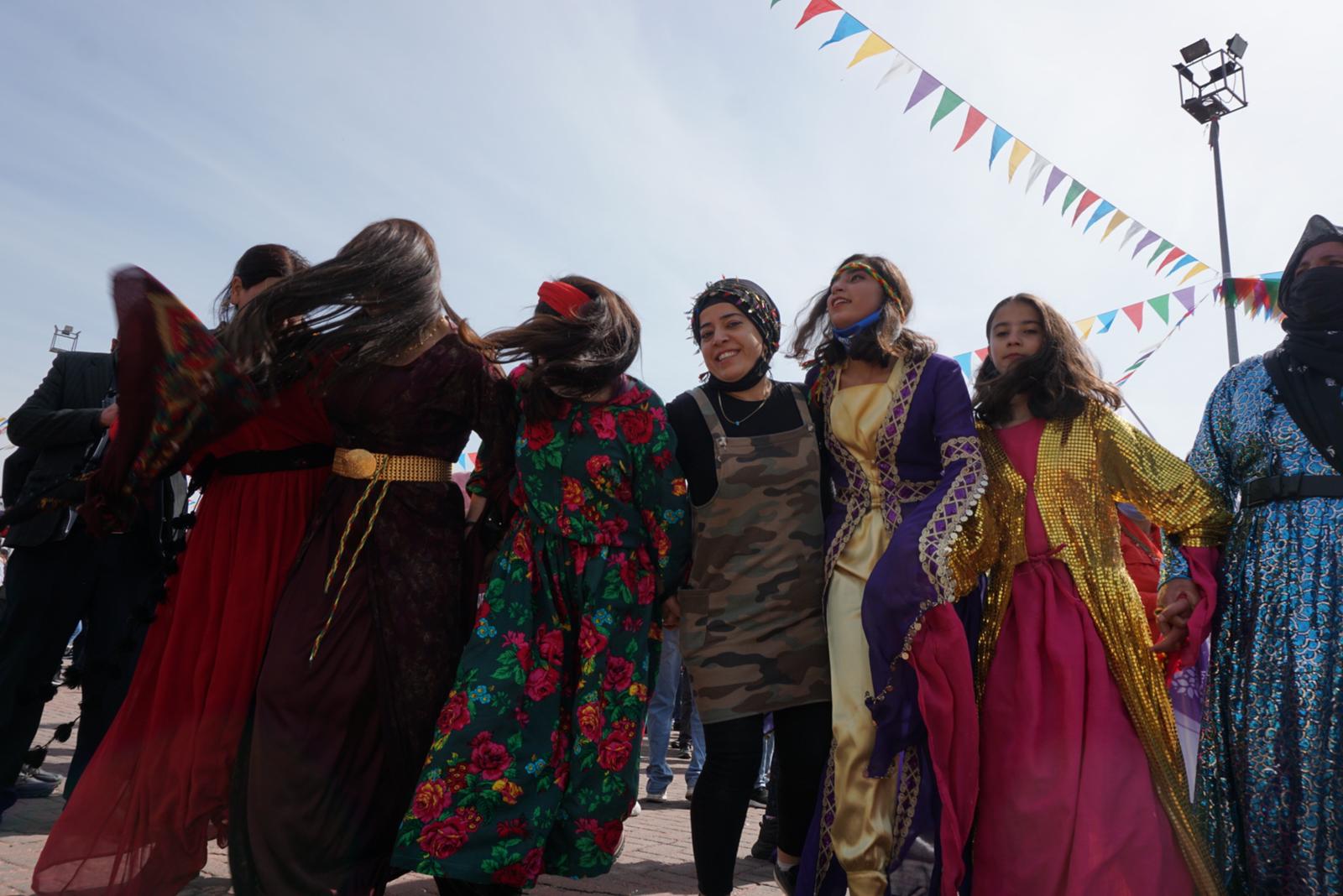
Why do Kurds celebrate Newroz?
According to the legend which is a part of the Kurdish society's verbal culture, two creatures came out of both shoulders of a tyrant ruler named Dehaq. The ruler, in order to not get killed, would offer two young Kurdish people to this creature everyday. The Kurdish servants at the Palace would send one young Kurdish to the mountain across the Palace while sacrificing one sheep and one young person. Over time, a "group of fugitives" were formed by the young people freed by the servants.
One day, the turn came to the son of Kawa, the ironsmith of the city. The father did not want to offer his only son to be sacrificed for the tyrant ruler. He went to the Palace. Soldiers did not take the hammer from his waist, thinking that he would forge iron at the Palace.
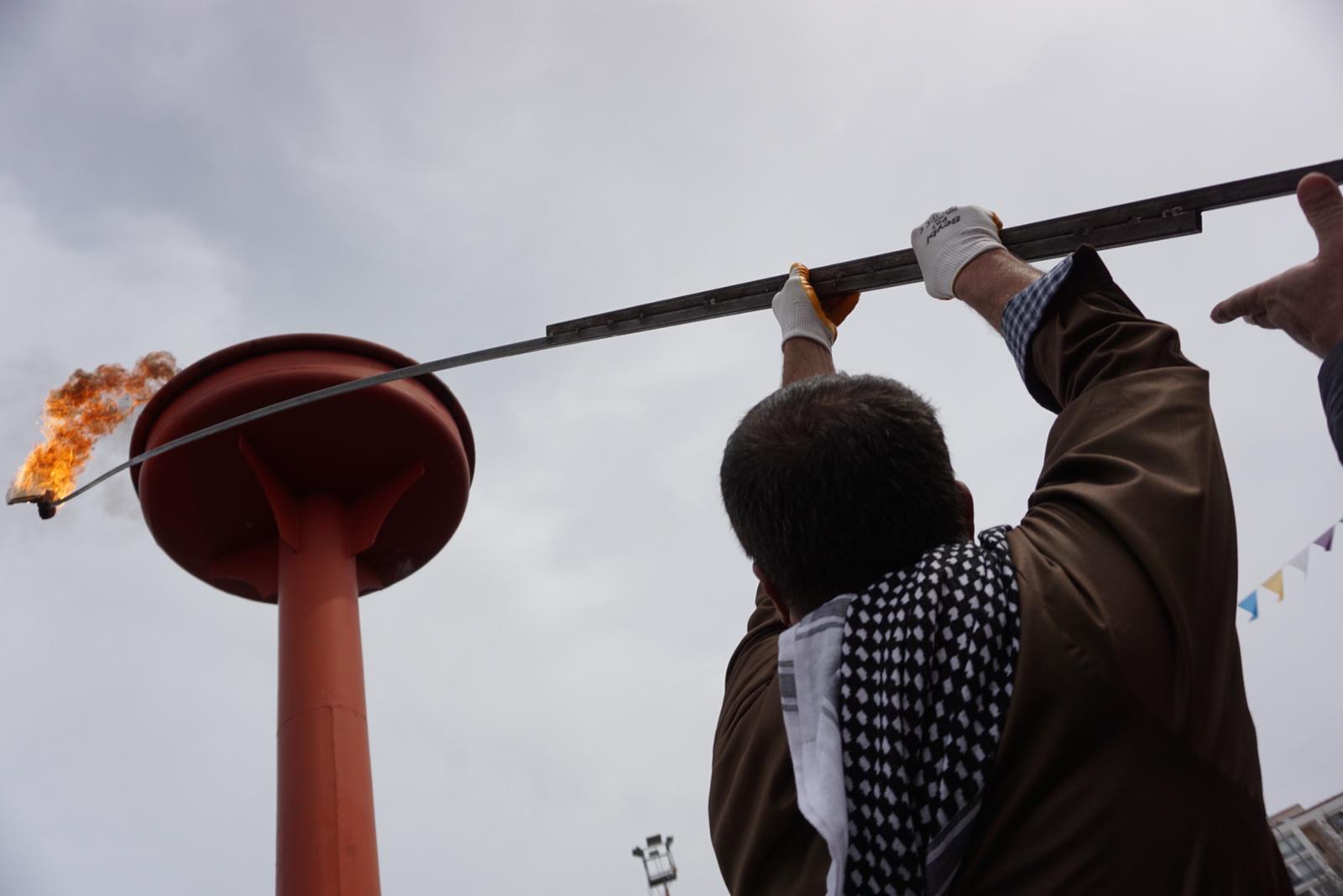
Kawa stood up against Dehaq and toppled him with his hammer. Then, he took a piece of cloth from his clothes, wrapped it around the hammer, set the cloth on fire and gave a message to the young people at the mountain across the Palace. The fugitive young people got the message, came to the Palace and toppled the government.
That day became Nûroj/Newroz for Kurds. Nû/new: new, roj/roz: day. It is now celebrated as the day of rejuvenation and sprouting of nature as well as the day of existence of the Kurdish race.
(Just like every other verbal cultural heritage, there are minor differences among the narratives of this legend. The above narrative is a brief summary of the one told by my mother Safiye Bayram.)
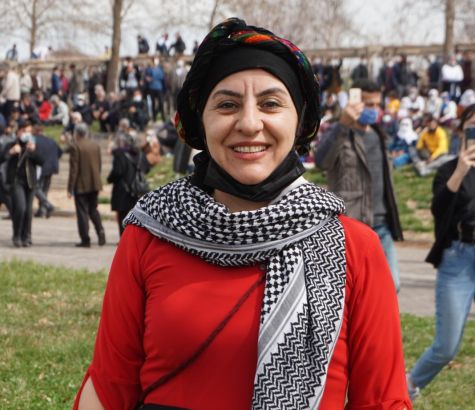
'Everything has been done!'
We came across Gülistan Mahabad at the square. She said, "It is not bearable anymore" and continued as follows:
"The state has done whatever it can do. Party closure is the final act. What the next move can possibly be?"
Newroz and NevruzThe word "roj" meaning "day" in Kurdish is pronounced as "ruz" in Persian. New day is pronounced as Nûrûz (نوروز ) in Persian. In Kurdish and Persian, two languages from the Persian branch of Indo-European languages, it is possible to make up news words by compounding words. Newroz/Nûrûz is a compound of two words. In Turkish, it seems that the "w" in the Kurdish word "Newroz" is changed into "v" and the "rûz" in the Persian word "Nûrûz" is changed into "ruz". According to the Turkish Language Society (TDK) dictionary, the Turkish word "Nevruz" is a compound of Persian "Nev+ruz" words and means "the day corresponding to the 21st day of March, which was considered to be the first day of the year and spring according to old calendars." Why celebrated on March 21?Before Kurds embraced the 30-day month system of modern times, they used to use a nature calendar. That calendar did not have 30 days. (Kurdologist Dr. İbrahim Seydo Aydogan, İnalco) The names of several months originated from nature. We also use these names in the 30-day calendar. For instance, the coldest forty days of winter, Çileyê Zivistanê (the forty of winter), wind "ba (Kuridsh)" when it blew "Sibat (February in English, Şubat in Turkish)" the feeding time of partridges Kewçêr (kew: partridge çêrîn: to feed) or "Cotmeh" (cot kirin: plough, meh: month) is used for October. On the first day of lighting up fire is Newroz celebrated. So, on the first of May. However, after Kurds embraced Islam, this day corresponded to March 13 in the new month system. Then, Kurds adopted the Gregorian calendar where this day falls on March 21. |
(MB/RT/SD)





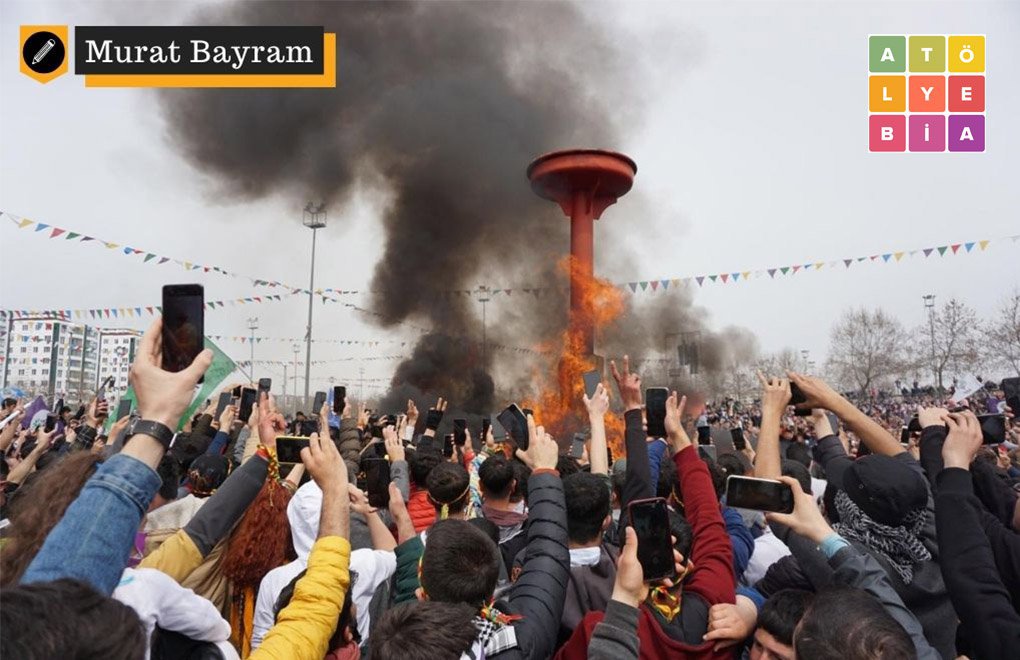
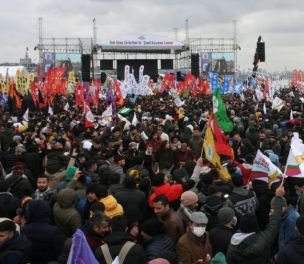
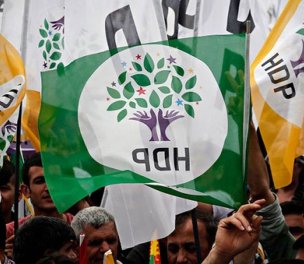
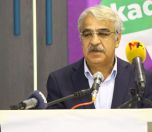
-132.jpg)
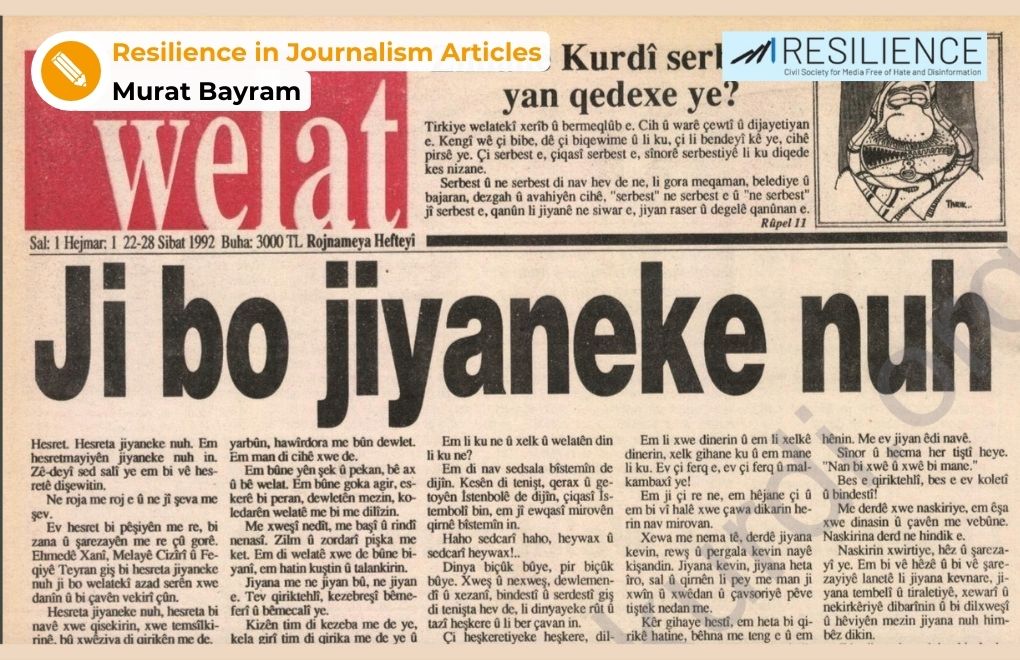
.jpg)
